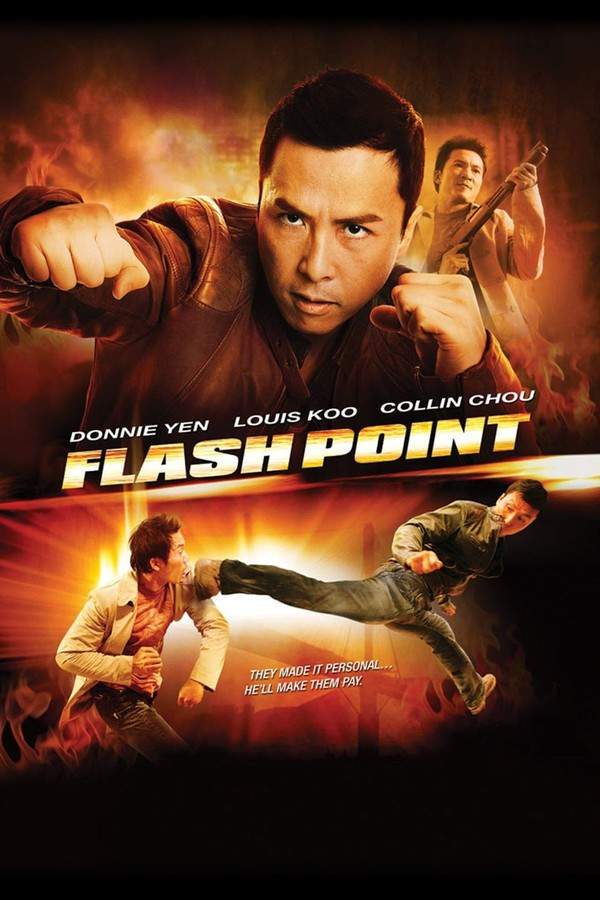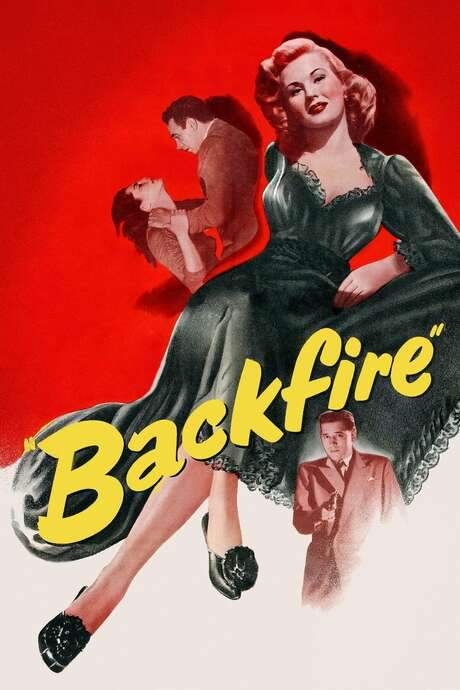
South Sea Woman
Year: 1953
Runtime: 99 mins
Language: English
Director: Arthur Lubin
Marine Sergeant James O’Hearn is court‑martialed at San Diego for desertion, theft, scandalous conduct and property destruction, but he refuses to plead. Showgirl Ginger Martin testifies that he stays silent to protect his friend, Marine Private Davey White. She also recounts meeting the two men in Shanghai while destitute, just weeks before Pearl Harbor.
Warning: spoilers below!
Haven’t seen South Sea Woman yet? This summary contains major spoilers. Bookmark the page, watch the movie, and come back for the full breakdown. If you're ready, scroll on and relive the story!
South Sea Woman (1953) – Full Plot Summary & Ending Explained
Read the complete plot breakdown of South Sea Woman (1953), including all key story events, major twists, and the ending explained in detail. Discover what really happened—and what it all means.
James O’Hearn, a U.S. Marine Master Gunnery Sergeant, sits in the hot seat of a courtroom at a San Diego Marine base, facing charges of desertion, theft, scandalous conduct, and destruction of property in time of war. He refuses to testify and declines to enter a plea, and the film unfolds through a careful braid of courtroom testimony and flashbacks that piece together the events leading to the charges. The proceedings themselves become a test of character, truth, and the limits of loyalty, with every witness adding a layer to a story that blurs the line between duty and personal choice.
In the shadows of the prewar tension, Ginger Martin, a showgirl, takes the stand to recount how she first met the enigmatic man at the center of the case and his close companion, Davy White, a Marine Private First Class in the 4th Marines. The two weeks before the attack on Pearl Harbor crackle with danger and choice: as war edges closer, orders push the Marines out of Shanghai, and White secretly schemes to marry Ginger so she can be evacuated from China at government expense as his wife. The court of public opinion grows louder as Ginger testifies, recounting the way a night of music and turbulence brought these three lives into an intricate, almost fated orbit.
O’Hearn, ever watchful and stubborn, tracks White down at the nightclub where Ginger works, intent on keeping his friend from slipping away into a quasi-escape. A clash erupts with the club’s manager over Ginger’s future, and a brawl spills into the night. The trio escapes aboard a small motor boat, but the sea itself proves capricious: as White and O’Hearn clash over their divergent paths, Ginger tries to intervene and inadvertently cripples the vessel. The boat drifts, and a passing junk rescues the survivors, a harboring of fate that soon pushes them toward a new, harsher set of decisions.
Drifting ashore, the group lands on a Vichy French island and faces a tricky reality: to avoid imprisonment, the Marines persuade the pro‑Axis Governor Pierre Marchand that they are deserters. The governor’s hospitality is a grim cover for a more dangerous arrangement, and the Marines are quartered in a hotel that doubles as a brothel run by Lillie Duval and her trio of devoted, scheming “nieces.” The island’s strange arrangement creates a charged misfit of loyalty and desire, with O’Hearn finding a troubling ease in the governor’s world, while Ginger remains wary of being drawn into a political and military web she never asked to join.
A Dutch yacht appears at the island’s shoreline, and O’Hearn eyes a possible escape route. The captain, Captain Van Dorck(/actor/rudolph-anders), proves wary of taking a risk, but the true danger becomes clear: Van Dorck is ideologically aligned with the Axis and has a plan to set up radar stations on the islands encircling Guadalcanal. O’Hearn pieces together a plot that involves expatriates like the ex‑U.S. Navy sailor Jimmylegs Donovan and a fugitive bank embezzler, Smith, who become allies in a daring scheme to seize the yacht and propel a movement against the encroaching war.
White’s stance grows more complicated as he wrestles with the meaning of his desertion. Ginger’s feelings shift as she witnesses the tides of war pulling everyone toward extreme acts. The courtroom narrative returns to the fore, and in a pivotal moment, the defense’s argument begins to tilt the scales. The trial’s star witness, Lt. Fears and the prosecutorial team led by Lt. Fears(/actor/hayden-rorke), clash with O’Hearn’s defense as the truth behind the desertion charges slowly comes into sharper focus. In a dramatic turn, O’Hearn speaks up in his own defense to exonerate White, reframing the choices made on Namou Island as acts born out of loyalty, desperation, and a desire to stop a greater threat.
When the threat is confronted, the island’s true danger surfaces in a brutal confrontation with the Japanese. O’Hearn and his makeshift band—now including the cunning and dangerous locals who know the island’s corridors of power—move to seize a strategic advantage and join the broader fight at Guadalcanal. Ginger slips aboard as a patriotic stowaway, drawn by a shared resolve to resist invasion and capture the moment when freedom must be defended by any means necessary. The ensuing battle thrusts the yacht into the heart of a frontline conflict, with Japanese landing craft and a destroyer looming large.
In the heat of combat, White sacrifices himself in a climactic blow: he climbs the destroyer’s smokestack, plants explosives, and triggers a catastrophic blast that sinks the enemy vessel at the cost of his own life. The courage of White’s selfless act is balanced against the heavy toll paid by the rest of the crew, who perish heroically in the line of duty. Amid the smoke and fire, O’Hearn proves his leadership through perilous decisions, and Ginger’s faith in him deepens as they navigate the wreckage of war and memory.
Back in court, the evidence finally converges toward a verdict that allows the truth to emerge from the fog of suspicion: James O’Hearn is exonerated, and the court recommends a posthumous Medal of Honor for Davy White. The film closes on a note of quiet, earned reconciliation as the two survivors confront their love for each other and the costly price of defiance in times of war. The trial’s end does not erase the scars, but it does affirm the idea that loyalty, when tested by the tides of history, can still yield a path to honor and a future together.
Last Updated: October 05, 2025 at 12:03
Explore Movie Threads
Discover curated groups of movies connected by mood, themes, and story style. Browse collections built around emotion, atmosphere, and narrative focus to easily find films that match what you feel like watching right now.
Military Buddy Dramas with Sacrifice like South Sea Woman
Stories where soldiers face trials of loyalty, betrayal, and the ultimate cost of friendship.If you liked the themes of loyalty and sacrifice in South Sea Woman, explore more movies like it. These films focus on intense military friendships tested by war, often featuring flashback narratives and bittersweet, emotionally heavy endings.
Narrative Summary
These stories often use a non-linear structure, starting with a consequence like a trial and unraveling the events through flashbacks. The plot revolves around a core friendship that is tested by extreme circumstances, leading to a sacrificial act that redefines the meaning of heroism and leaves a lasting emotional impact.
Why These Movies?
Movies in this thread share a high-intensity, tense tone driven by life-or-death stakes. They balance steady-paced action with deep emotional exploration, resulting in a heavy emotional weight and a bittersweet conclusion where victory is tempered by profound loss.
Tense Flashback Mystery Dramas like South Sea Woman
Films where the truth is pieced together through tense, high-stakes recollections.For viewers who enjoyed the courtroom flashback structure of South Sea Woman, this list features similar movies with mystery unraveling narratives. Discover stories where the past is revealed piece by piece to solve a present-day dilemma, creating a steady, suspenseful pace.
Narrative Summary
The narrative pattern hinges on a key event in the present that forces characters to recount the past. The flashbacks are not just memories but are integral to solving a mystery, clearing a name, or understanding a tragedy. This structure creates a moderate complexity as the audience pieces the timeline together alongside the characters.
Why These Movies?
These films are grouped by their shared use of a non-linear storytelling device that generates suspense and maintains a steady, engaging pace. They consistently deliver a tense tone and often lead to emotionally heavy, consequential revelations.
Unlock the Full Story of South Sea Woman
Don't stop at just watching — explore South Sea Woman in full detail. From the complete plot summary and scene-by-scene timeline to character breakdowns, thematic analysis, and a deep dive into the ending — every page helps you truly understand what South Sea Woman is all about. Plus, discover what's next after the movie.
South Sea Woman Timeline
Track the full timeline of South Sea Woman with every major event arranged chronologically. Perfect for decoding non-linear storytelling, flashbacks, or parallel narratives with a clear scene-by-scene breakdown.

Characters, Settings & Themes in South Sea Woman
Discover the characters, locations, and core themes that shape South Sea Woman. Get insights into symbolic elements, setting significance, and deeper narrative meaning — ideal for thematic analysis and movie breakdowns.

South Sea Woman Spoiler-Free Summary
Get a quick, spoiler-free overview of South Sea Woman that covers the main plot points and key details without revealing any major twists or spoilers. Perfect for those who want to know what to expect before diving in.

More About South Sea Woman
Visit What's After the Movie to explore more about South Sea Woman: box office results, cast and crew info, production details, post-credit scenes, and external links — all in one place for movie fans and researchers.

Similar Movies to South Sea Woman
Discover movies like South Sea Woman that share similar genres, themes, and storytelling elements. Whether you’re drawn to the atmosphere, character arcs, or plot structure, these curated recommendations will help you explore more films you’ll love.
Explore More About Movie South Sea Woman
South Sea Woman (1953) Scene-by-Scene Movie Timeline
South Sea Woman (1953) Movie Characters, Themes & Settings
South Sea Woman (1953) Spoiler-Free Summary & Key Flow
Movies Like South Sea Woman – Similar Titles You’ll Enjoy
South Pacific (2001) Plot Summary & Ending Explained
McVeagh of the South Seas (1914) Movie Recap & Themes
Girl of the Port (1930) Film Overview & Timeline
Saturday Island (1952) Full Summary & Key Details
South Pacific (1958) Spoiler-Packed Plot Recap
The Sea Chase (1955) Story Summary & Characters
Sea Wife (1957) Full Summary & Key Details
Don’t Go Near the Water (1957) Detailed Story Recap
The Private Navy of Sgt. O’Farrell (1968) Spoiler-Packed Plot Recap
Paradise Island (1930) Spoiler-Packed Plot Recap
Seas Beneath (1931) Complete Plot Breakdown
Tell It to the Marines (1926) Full Summary & Key Details
Pearl of the South Pacific (1955) Full Summary & Key Details
Sea Spoilers (1936) Spoiler-Packed Plot Recap
South Seas Adventure (1958) Spoiler-Packed Plot Recap












































